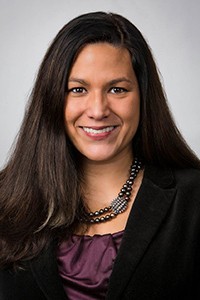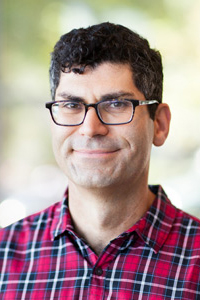About the Authors
Margo Schlanger
Margo Schlanger is the Wade H. And Dores M. Mccree Collegiate Professor of Law at the University of Michigan, where she has taught since 2011. After clerking for Justice Ruth Bader Ginsburg of the U.S. Supreme Court, she began her legal career as a trial attorney in the U.S. Department of Justice Civil Rights Division, where she worked to remedy civil rights abuses by prison and police departments. Her scholarship about prison litigation has appeared in many leading law reviews, and is frequently cited by courts and litigants. A leading authority on civil rights issues and civil and criminal detention, she served on the Vera Institute’s blue ribbon Commission on Safety and Abuse in America’s Prisons; worked as an advisor on the development of proposed national standards implementing the Prison Rape Elimination Act, and testified before the Prison Rape Elimination Commission. She also served as the reporter for the American Bar Association’s revision of its Standards on the Treatment of Prisoners. She has served as both an independent monitor and an expert in systemic prisoners’ rights lawsuits.
Sheila Bedi
Sheila A. Bedi is a clinical professor of law at the Northwestern Pritzker School of Law and director of the Community Justice and Civil Rights Clinic, a law school clinic that provides students with opportunities to work within social justice movements on legal and policy strategies aimed at redressing over-policing and mass imprisonment. Bedi litigates civil rights claims on behalf of people who have endured police violence and abusive prison conditions. She also represents grassroots community groups seeking to end mass imprisonment and to redress abusive policing. Bedi teaches classes on legal reasoning and writing and the law of state violence to students who are incarcerated through Northwestern’s Prison Education Program. Bedi’s partnerships with affected communities on litigation and policy campaigns have closed notorious prisons and jails, increased community oversight of law enforcement, created alternatives to imprisonment and improved access to public education and mental health services. Previously, Bedi served as a deputy legal director of the Southern Poverty Law Center. Her honors include the NAACP’s Vernon Dahmer and Fannie Lou Hamer Award and the Federal District Court Excellence in Public Interest Award (N.D. Ill.). Bedi writes about race, gender, and the justice system and her commentary has been published by U.S. News and World Reports, the Huffington Post, and USA Today.
David Shapiro
David M. Shapiro is the Director of the Supreme Court and Appellate Program of the Roderick and Solange MacArthur Justice Center, a group dedicated to strategic representation in high-stakes civil rights appeals throughout the nation. Shapiro litigates to protect civil rights and criminal justice in the U.S. Supreme Court, the federal courts of appeals, and state supreme courts. In recent years, Shapiro has argued before the en banc Eighth and Ninth Circuits, the Illinois Supreme Court, and numerous federal appellate panels across the country, winning appeals regarding law enforcement brutality and misconduct, the Prison Litigation Reform Act, criminal procedure, First Amendment liberty, and deaths in custody. Shapiro has published extensive scholarship on civil rights, including articles in the Harvard Law Review, the Notre Dame Law Review, the George Washington Law Review, and the Columbia Human Rights Law Review.
Lynn Branham
Lynn Branham is Visiting Professor of Law at St. Louis University. Her expertise centers on correctional and sentencing law and policy. She has provided training to federal judges and court staff about correctional law and the Prison Litigation Reform Act (PLRA) at twenty-two workshops sponsored by the Federal Judicial Center.
Branham was the lead author of the 4th through the 9th edition of this casebook, which was previously titled Cases and Materials on the Law of Sentencing, Corrections, and Prisoners’ Rights. She has also written numerous articles on these subjects, and a technical-assistance manual for courts, correctional officials, and attorneys general on pro se inmate litigation. Branham has held numerous leadership positions in the American Bar Association, serving, for example, as a member of the Criminal Justice Section’s Council, Co-Executive Director of the Equal Justice Division, Chair and later Co-Chair of the Corrections Committee, Chair of the Prison Litigation Reform Act Task Force, and Chair of the Subcommittee on Effective Prison Oversight. A member of the Commission on Accreditation for Corrections for sixteen years (fourteen as the ABA’s representative), she received the American Correctional Association’s Walter Dunbar Award for her efforts to improve the ACA accreditation process.



